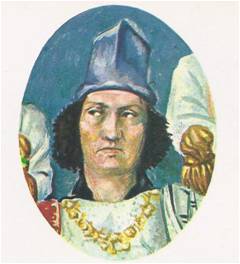Henry Tudor was a patient young man, who waited and watched while civil war raged in England and quarreling lords fought to see who would be king. He waited safely in France, biding his time until his spies told him the hour had come to strike. Then from northern France he crossed the English Channel with 2000 soldiers. Ahead of Henry and his soldiers had gone his agents, who sought to weaken the position of England’s King, Richard III. Henry’s agents had plotted secretly with some of Richard’s supporters, lords who led small armies of their own. That was why …
Read More »Tag Archives: States-General
France Becomes a Great Nation 1453-1631
WHEN MORE than a century of war between England and France ended in 1453, it was the French king, Charles VII, who was victorious. Although he had driven the English out of France, Charles found himself the king of a sad land. During the wars the great French nobles had fought among themselves as bitterly as they had fought the English and they had become so powerful that they no longer respected their king. France itself was devastated, the people poor and hungry. Paris had been half ruined. Wolves prowled the city by night and twenty-four thousand houses stood empty. …
Read More »
